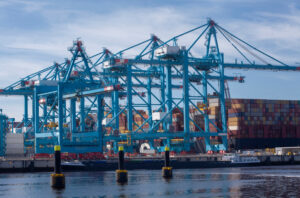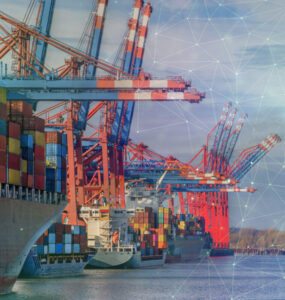Congressman Carlos A. Giménez from Florida and Rep. John Garamendi from California have jointly introduced a new bipartisan legislation to safeguard US ports from potential security risks.
The Port Crane Security and Inspection Act of 2023 aims to address the growing concerns regarding China’s influence on port infrastructure, specifically cargo cranes.
The act proposes several measures to mitigate the risks associated with the use of foreign cranes from countries considered adversaries of the US, such as China.
The bill includes restrictions on the use of such cranes, requiring the Cybersecurity and Infrastructure Security Agency (CISA) to conduct inspections of foreign cranes for potential security vulnerabilities before they are put into operation.
Furthermore, the act mandates that CISA provides the Congress with reports on critical and high-risk security vulnerabilities posed by foreign cranes in US ports.
READ: White House releases National Cybersecurity Strategy
Currently, approximately 80 per cent of the port cranes in operation within the US are manufactured in China.
Rep. Carlos A. Giménez emphasized the national security threat posed by China in Beijing and stressed the need to decouple from China.
“The Port Crane Security & Inspection Act of 2023 guarantees that America’s ports are protected from cybersecurity attacks and potential security breaches by malign actors.”
Rep. John Garamendi expressed his support for the legislation, highlighting the importance of safeguarding the nation’s seaports from foreign cyberattacks and industrial espionage. He emphasized the bill’s aim to promote domestic production of cranes in order to enhance the security of critical infrastructure at major cargo ports.
READ: Pro-Russian hackers suspected in cyber attacks on Canadian ports
In response to the legislation, Chris Connor, President and CEO of the American Association of Port Authorities (AAPA), strongly countered the “sensationalised” claims about the equipment’s security, pointing out the lack of any supporting evidence.
“At best, that’s a misleading statement,” Connor remarked in a released statement addressing the issue.
He clarified that the cranes acquired by ports in the US are chosen based on cost considerations and are equipped with separate software obtained from allied nations.
Additionally, these cranes undergo stringent security inspections in collaboration with federal government partners to effectively mitigate cyber threats.
Connor emphasized that the primary concern for ports lies in the inability to manufacture such hardware within the US. He suggested that instead of focusing solely on the equipment’s security, lawmakers in Washington, D.C., should also inquire why domestic production of this hardware is not feasible.
The association clarified that there have been no known security breaches as a result of the use of cranes at US ports, despite media reports.









